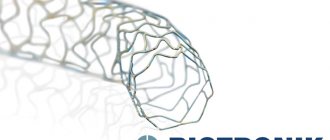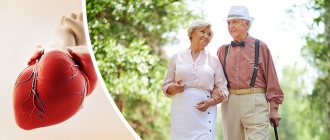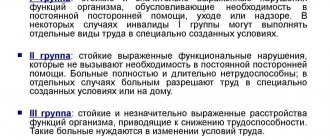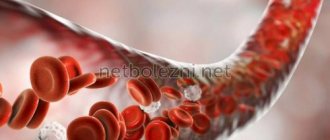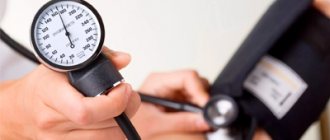The reality is that alcohol still causes a huge number of illnesses, deaths and accidents. First of all, this is due to a loyal attitude towards its use: if you say in a group of friends that you use drugs, you will receive a real portion of condemnation, although the same words about vodka will not surprise anyone.
This loyalty has developed in society due to misconceptions about alcohol. A safe dose, healthy wine and the treatment of viruses with vodka - these and other myths are long overdue for consignment to the dustbin of history.
Alcohol and heart attack: why your risk increases
Heart attack and alcohol have gone side by side for many hundreds of years. And the mutation itself in the enzyme alcohol dehydrogenase , which allowed a person to break down ethanol, occurred back in the days when he learned to make fire and chased mammoths with a stone ax.
The fact that our bodies contain endogenous alcohols suggests that alcohol consumption is not a critical factor. With the same ease, diseases of the heart muscle can be blamed on carbohydrates, table salt and animal fats, which can lead to hyperglycemia, hypertension and atherosclerosis. Alcohol-containing substances affect the heart muscle as follows:
- cause spasm of the muscular lining of blood vessels;
- increase blood pressure numbers;
- increase heart rate;
- promote the release of potassium from cardiomyocytes;
- increase magnesium losses;
- potentiate free radical damage;
- have a toxic effect on protein formation processes;
- disrupt the coupled work between the processes of excitation and contraction.
These effects depend on the frequency and quantity of alcohol consumed. Low and moderate doses, in turn, have completely unique effects. One of the large clinical studies demonstrated a 37% reduction in the risk of myocardial infarction when consuming ethanol-containing substances in acceptable quantities 5-6 times a week. Over 38 thousand men took part in it. In another similar large-scale study, this figure was as much as 42%. The cardioprotective mechanism is associated with the ability of ethanol to increase the level of beneficial high-density lipoproteins and antiplatelet effects.
However, alcohol has not been recognized as a means of mass prevention of CVD diseases, since its use is quite difficult to control. For example, in Russia, the mortality rate from heart pathologies associated with taking alcohol-containing substances is over 36%, and for those suffering from chronic alcoholism it is 50% or more. Sudden cardiac death occurs in 10% of such patients.
During my practice, I noticed one important feature. A heart attack in alcoholics often occurs without pain. In this way it is similar to a heart attack that occurs with diabetes mellitus. Long-term abusers may feel the symptoms of the disease only after a few days. The symptoms of an alcoholic heart attack are no different from a classic one.
The first signs are:
- burning, baking, pressing pain in the sternum;
- irradiation of pain to the left shoulder blade, arm, shoulder, back, less often to the lower jaw and the right half of the body;
- shortness of breath, feeling of lack of air;
- feeling of fear of death;
- dizziness, severe weakness;
- interruptions in the work of the heart (extrasystole, atrial fibrillation, AV block, etc.);
- less often vomiting, disturbances in speech, vision, coordination of movements, cough and pallor of the skin.
Extensive alcoholic myocardial infarctions, accompanied by the death of more than 40% of the heart muscle, are manifested by signs of cardiogenic shock:
- a pronounced drop in blood pressure;
- signs of left ventricular failure (pulmonary edema);
- decreased urine output (oliguria, anuria);
- soporous or comatose state.
From personal experience, I can say that the effect of alcohol on the development of a heart attack is controversial. With minimal use I have seen a decrease in incidence, but it is much more common in regular drinkers.
How does alcohol affect the heart and blood vessels?
The effect of alcohol on the cardiovascular system is controversial. Leading doctors from different countries have still not reached a consensus on this matter. The fact that with chronic alcoholism the heart suffers greatly is beyond doubt. The discussion revolves around moderate doses of alcohol. Some experts argue that they are as harmful as drinking too much alcohol, while others say that drinking alcohol in small quantities is beneficial.
It's all about the ambiguous effect of ethyl alcohol on human blood. On the one hand, its small doses have an antiplatelet effect and normalize the lipid composition of the blood. This effect is especially pronounced in red wine, which is due to the presence in it not only of alcohol, but also of other substances that affect the blood: antioxidants, resveratrol, catechin, polyphenols, etc. A small amount of alcoholic beverages reduces the synthesis of blood clotting factors, reducing its viscosity and tendency to thrombosis. In addition, alcohol increases the formation of high-density lipoproteins, which prevent the development of atherosclerosis.
On the other hand, ethanol increases the risk of developing diabetes. This occurs due to a negative effect on the pancreas. As a result, insulin production is disrupted, and alcohol increases blood sugar levels, which is known to be a risk factor for heart attack and stroke. Even if the dose of alcohol is slightly exceeded, water loss occurs (a sign of this is severe thirst during a hangover), which means that blood viscosity becomes higher.
The direct effect of alcohol on the myocardium and vascular wall is of great importance. It is clear that for a person who does not stop drinking for a long time, it will be clearly negative: with alcoholism, signs of alcoholic myocardiopathy develop. But small doses of ethanol are incapable of direct toxic effects. However, over time they can lead to hypertension.
There are several factors contributing to this:
- violation of autonomic regulation,
- rigidity of the vascular wall,
- dilatation of peripheral vessels,
- change in circulating blood volume.
As a result, over time, signs of myocardial hypertrophy appear. And hypertrophy is always unbalanced growth. Up to a certain point in time, this condition is compensated, but then the reserves are depleted. Heart failure develops. In addition, an enlarged myocardium requires more blood supply, and the coronary arteries may not be able to cope with such a load. A possible outcome in this case is coronary heart disease and myocardial infarction.
Impact on recovery
The rehabilitation period for persons who have suffered acute myocardial infarction depends on the severity of the disease. With a small amount of necrosis, recovery takes on average about 6 months. In the presence of extensive damage to the muscular lining of the heart and its complications (aneurysm, Dressler's syndrome, chronic heart failure, post-infarction angina, and others), the time period increases markedly.
Modern cardiological associations recommend prohibiting alcohol after a heart attack for all patients without exception. My practice shows that under its influence there is a lengthening of the recovery interval, and the risk of repeated heart attacks increases significantly.
The negative effects of alcohol that affect rehabilitation include the following:
- increased blood pressure;
- worsening blood picture;
- depression of cardiac function.
For more interesting information (as well as recommendations from the Mayo Clinic) about the effect of alcohol-containing drinks on blood pressure, pulse and other parameters of the cardiovascular system, see our channel in the video below.
Alcoholic drinks after a stroke
The question of whether you can drink alcohol after a stroke (or mini-stroke) is more controversial. The answer to it is largely determined by what kind of stroke a person has experienced: ischemic or hemorrhagic (this is determined by a neurologist based on a number of signs; currently, doctors rely primarily on computed tomography data). If the stroke was hemorrhagic, then you should definitely say “no” to alcohol, even if it is just a micro-stroke. It's all about the increase in blood pressure under the influence of ethanol (it is hypertension that most often leads to hemorrhagic stroke). Therefore, even a micro-stroke is a signal of danger, the first sign that it is time to radically change your lifestyle.
In the case of ischemic stroke or microstroke, everything is much more complicated. Its main causes are atherosclerosis and thrombosis, and alcohol in small doses helps prevent these conditions. However, it is possible that the first stroke or micro-stroke was caused by alcohol consumption (the main sign that allows us to draw such a conclusion is the amount of alcohol consumed recently).
In any case, you should definitely reconsider your attitude towards alcohol: now you can only drink in small portions, and nothing else. If a person gets heavily drunk, he runs the risk that a micro-stroke will develop into a major stroke, and the consequences will be very serious. In general, studies conducted among men who have suffered an ischemic stroke or mini-stroke show the same figures that are typical for a heart attack.
As statistics show, alcohol after a heart attack, stenting and ischemic stroke (ministroke) can be consumed (and even useful), but only in small quantities: no more than a glass of wine, a mug of beer or a glass of vodka per day (this dose is calculated for men, for women it should be even smaller). However, you should not start drinking for medicinal purposes: there are medications for this. Modern drugs cope with protecting the heart and blood vessels much better than alcohol. It will be optimal if you drink only on holidays, but in small doses.
The situation is even more complicated with a stroke . If a number of signs determine that he is hemorrhagic, then alcohol is definitely prohibited . For ischemic stroke, as well as for heart attack or stenting, a small amount of ethanol is allowed. In any case, before you start drinking alcohol after a stroke or heart attack, you should consult with your doctor. Only he will be able to take into account the state of your body and the compatibility of alcohol with the medications you are taking. Remember that his opinion in this matter should be decisive.
Permissible doses
Modern recommendations of the USA (ACC/AHA), Russian and European Societies of Cardiology (ESC) allow the consumption of alcoholic beverages converted to pure alcohol (i.e. 98%) in the following dosages:
- for men - 28 g/day;
- for women - 14 g/day.
For males, this corresponds to about 60 ml of vodka, 200 ml of wine or 400 ml of beer. Evidence-based medicine class - IIB. Consumption in excess of the norm entails serious consequences regarding human health. But most people, especially men, are interested in whether it is possible to drink beer after a heart attack.
Traditional recommendations for patients who have had a history of myocardial infarction are to completely abstain from alcohol in any form. However, according to the results of one significant study published in the European heart journal in 2012, males who completely abstained from alcohol found themselves in a less advantageous position. The risk of mortality from cardiovascular pathology in this category was higher than in individuals who consumed no more than 1-2 glasses of red wine daily.
The greatest survival rate among 1818 observed men was shown by patients who drank alcohol after a heart attack and before it in an acceptable amount. For women who have suffered a cardiovascular accident, the issue of alcohol intake has not been studied and remains open.
In relation to alcohol, there is a fundamental difference between European and Russian scientific schools. The latter insist on complete refusal, and I completely agree with their opinion. I also advise my patients to avoid alcohol, especially after an acute myocardial infarction.
Alcohol and stenting
Stenting is a method of treating heart disease that involves replacing the coronary arteries with a special stent—a metal tube with wire cells. Thanks to the surgical procedure, the narrowed lumen of the blood vessels is restored.
Currently, there are more than 400 variations of stents. They are small in size, compatible with human tissue, and have sufficient flexibility and elasticity, which allows them to support the walls of blood vessels affected by atherosclerosis.
A significant breakthrough was the use of stents with a specific coating that releases drugs over a long period of time. They prevent excessive growth of the internal arterial membrane (intima), which contributes to increased occlusion. Modern capabilities helped achieve successful results in 95% of cases. The procedure lasts about half an hour, has virtually no complications, and the simplicity and bloodlessness of the manipulation allows the patient to be discharged home after 1-2 days.
An alternative, but more labor-intensive operation for heart disease is bypass surgery. It consists of creating an additional path to bypass the affected coronary artery.
An important aspect after heart surgery is maintaining the necessary diet. It includes a complete absence of alcohol for at least 1 year. In most cases, it is during this period that blood-thinning (antiplatelet, anticoagulant) drugs are prescribed - Plavix, Warfarin, Dabigatran, Rivaroxaban. These medications are not compatible with alcohol-containing substances, so I do not recommend drinking alcohol with them after stenting or a heart attack. The role of non-alcoholic products, including beer, has not been studied.
In the future, alcohol intake in patients who have undergone stenting or bypass surgery is quite possible in minimal and moderate dosages. For example, the amount of red wine should not exceed 1 glass per day. There have been no long-term studies proving the harm of alcohol products after manipulation.
Stroke and alcohol
The disease is characterized by an acute circulatory disorder of the brain, which leads to serious consequences. Stroke is the second leading cause of death after heart attack. The disease occurs due to the fact that the vascular walls lose their elasticity, which is not least facilitated by alcohol abuse.
Once in the blood, ethanol instantly dilates blood vessels, but only for a short time. After some time, the reverse process occurs, which can lead to rupture of the vascular wall.
During the rehabilitation period, drinking alcoholic beverages increases the risk of relapse of the disease, so alcohol is strictly prohibited for a long time after a stroke. After recovery and long-term remission, experts consider dry red wine acceptable in quantities not exceeding 200 ml.
Wine contains a large amount of flavonoids, which act as antioxidants and protect cells from free radicals. Biologically active substances promote the removal of fats and prevent the formation of cholesterol plaques that cause blockage of blood vessels.
A number of scientists believe that when consumed wisely, wine reduces the risk of rupture of vascular walls, therefore, when choosing alcohol, stroke survivors are recommended to give preference to dry red wine.
Alcohol overdose can cause recurrence of heart attack or stroke
Expert advice
- Drink alcohol only in recommended dosages, but do not forget that each body is individual.
- Remember, only systematic abuse of alcohol, including beer, can lead to a heart attack.
- Myocardial infarction in alcohol abusers is often painless. The first symptom is sudden shortness of breath. If present, call an ambulance immediately.
- During the first year after stenting, avoid alcohol-containing substances completely.
Clinical case
A 55-year-old man came to my outpatient clinic with complaints of sudden shortness of breath at night and pain in the left upper limb.
According to relatives, over the past 2 years he has been abusing alcohol (wine, vodka, beer). He worked as a builder at the age of 18, but is currently unemployed. Objectively, I noted the following changes: blood pressure 145/80 mm Hg. Art.; Respiratory rate 26/min; Heart rate 94/min. During auscultation of the heart, single extrasystoles were noted, auscultation of the lungs was unremarkable, and there was no peripheral edema. Instrumental: ECG - sinus tachycardia, normal position of the EOS, pathological Q wave and ST segment elevation in leads II, III, AvF. First aid was provided: antiplatelet agents, beta blockers, calling an ambulance with further hospitalization in the cardiology department with the diagnosis: “Acute Q-myocardial infarction of the posterior phrenic region, AHF 1.” As you can see, myocardial infarction is not a rare finding in people predisposed to drinking alcohol. Of course, alcohol-containing products are not the only risk factor for developing a heart attack, but taken together they significantly increase the likelihood of one.
Particular attention should be paid to the absence of typical chest pain. That is why, if there are even indirect symptoms of a heart attack in this category of people, it is necessary to conduct an electrocardiographic study.
Do you have relatives or friends who abuse alcohol after a myocardial infarction or heart surgery?




